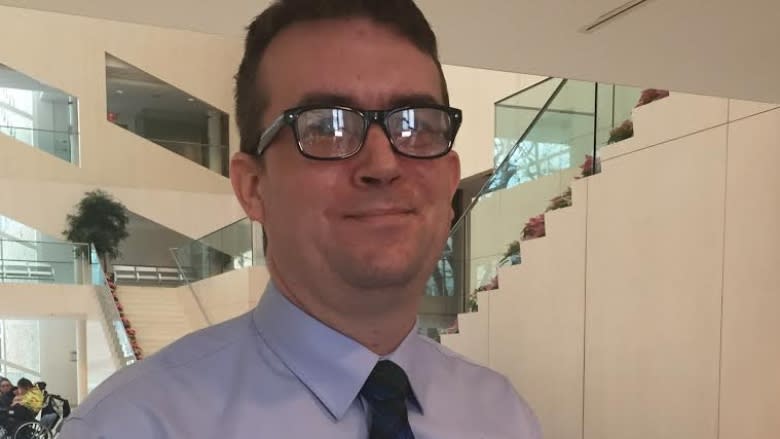Safe injection site may have saved life of 'passionate chef,' mother says
A grieving mother whose 25-year-old son died after a fentanyl overdose was one of the people at city hall Monday supporting the need for safe injection sites.
Petra Schulz's son Danny Schulz died from an accidental fentanyl overdose in 2014.
An accomplished chef working at one of Edmonton's top restaurants, he struggled with social anxiety and addiction issues, she said.
"He was a passionate chef. The last Christmas we had with him, he made a roast beef and a demi-glaze. Our friends still talk about it. It's hard this time of year when you remember these things."
She wants people to see the human face of addiction.
'We blame it on the victim'
"We blame it on the victim, we blame it on the person. That is why people like our son have such a hard time reaching out and getting the help they need," she said.
"My story is about telling that people who need these sites, people who struggle with opioid addiction, are people just like everybody else."
Schulz said safe injection sites are a piece of the puzzle that could have saved her son, along with harm reduction strategies like opioid replacement therapy and naloxone kits.
A report presented Monday by the Access to Medically Supervised Injection Services Edmonton Advisory Committee called for city council's support for four safe injection sites.
One would be at the Royal Alexandra Hospital; the other three would be in existing community organizations.
The report said such safe injection sites could not only save lives but also health care dollars by helping prevent the spread of HIV and hepatitis C.
The lifetime cost of caring for one HIV patient is well over $200,000, the report stated.
The need for the sites received support from city councillors.
"We should have done this a long time ago," said Coun. Dave Loken. "We need to be very aggressive about this. We need to get on with this."
Coun. Scott McKeen says he is "100 per cent in support" of the safe injection sites.
"Addiction is a profound illness," he said. "They are our fellow citizens and they need our help."
Coun. Bev Esslinger agreed. "We all need a helping hand from time to time," she said.
Once opposed, now a big supporter
Adam Millie, a resident of Alberta Avenue, was originally opposed to the idea, but is convinced the project must proceed.
"These people need to inject and they are going to inject somewhere," Millie said. "Doing it in the schoolyard of an elementary school in the inner city is not the place to do it.
"Doing it at a hospital is the correct place to take medication."
After unanimous support from the community and public services committee, the next step will be public consultation.
That will take place over two weeks and should be completed by the end of February.



